What Exactly Is Marianne Williamson's Reparations Plan?
The Democratic candidate has taken a very strong stance on the issue.
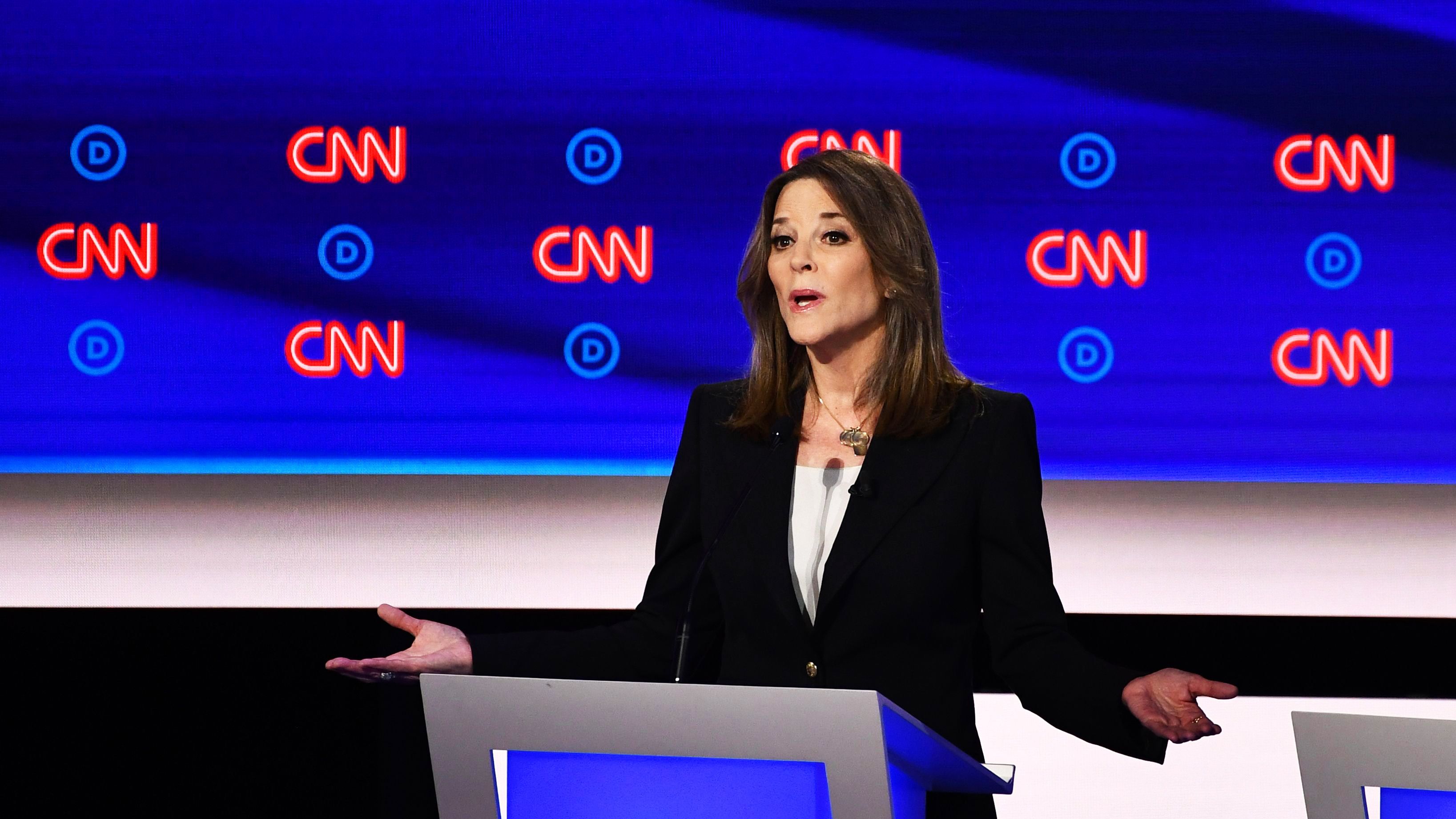
So far, night one of the second round of Democratic debates was spicy, to say the least. As expected, the candidates had much to say about issues such as Medicare for all, immigration reform, and revitalizing the economy, with outspoken senators Bernie Sanders and Elizabeth Warren dominating the conversation as the two most left-leaning Democrats of the evening. But to the surprise of anyone who's been following the race so far, the dark horse of tonight's debates was Marianne Williamson.
The author and personal spiritual guide to Oprah Winfrey herself didn't get as much airtime as her fellow candidates (CNN's moderators were especially strict with time limits this time around), but when she did speak, Williamson made some very, very strong points. One particularly notable point was her strong stance on what many consider a controversial issue: reparations.
The basic idea behind reparations in the United States is that this country, having been built off of the blood and labor of enslaved Africans for centuries, owes their descendants significant financial compensation for their trauma and work.
The topic has been a major point of conversation for Democratic candidates in this election, in part due to the academic work of race scholars and grassroots activists making its way to the mainstream; just last month (on Juneteenth nonetheless, a holiday memorializing the day that enslaved people in Texas were first notified that slavery had been abolished), the House Judiciary Subcommittee on the Constitution, Civil Rights, and Civil Liberties held its first congressional hearing on reparations in over a decade.
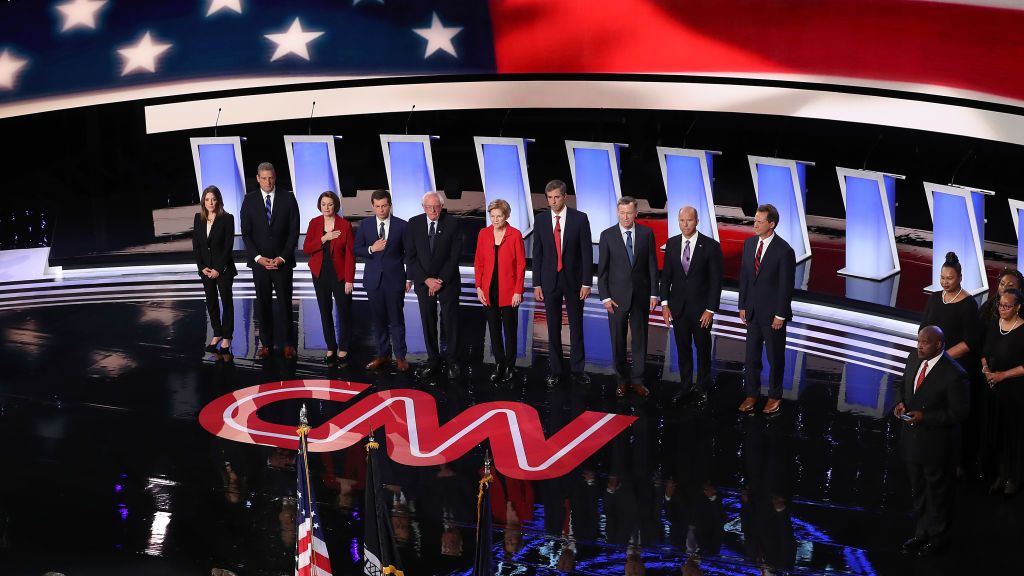
While several of the Democratic hopefuls have expressed (somewhat lukewarm) opinions on the notion of reparations, Williamson is the only candidate so far to take a clear position and communicate a plan for it—she believes that reparations are an essential measure towards racial reconciliation in the United States. "The legacy of that injustice lives on, with racist policies infused into our systems even to this day," says her campaign website. "From employment and housing discrimination, to equal access to quality education in underserved communities, to police brutality/prejudice, to lack of fair lending practices, to lack of access to quality healthcare, to insecure voting rights, America has not yet completed the task of healing our racial divide."
To address these racial inequalities, Williamson is proposing a $200-$500 billion plan of reparations for slavery, with the funds to be disbursed to recipients over the course of twenty years. While she hasn't yet discussed how the money will be distributed and exactly who qualifies to receive the reparations—there have been disagreements about whether all Black Americans should be eligible for the payments or if they should be limited to the descendants of the enslaved—Williamson's proposal is by far the most definitive of the candidates, many of whom have simply promised to look into it further if they became president.

Tonight, she reminded her competition and those of us watching at home that she is staunchly pro-reparations and, if voted to the highest office in the land, will do everything in her power to make them a reality. Calling reparations a "debt that is owed," Williamson spoke passionately on the deeply rooted obligation. "We need to recognize when it comes to the economic gap between black and whites in America, it does come from a great injustice that has never been dealt with,” William said onstage. "That great injustice has had to do with the fact that there was 250 years of slavery, followed by another 100 years of domestic terrorism."
Stay In The Know
Get exclusive access to fashion and beauty trends, hot-off-the-press celebrity news, and more.
For more stories like this, including celebrity news, beauty and fashion advice, savvy political commentary, and fascinating features, sign up for the Marie Claire newsletter.
RELATED STORY
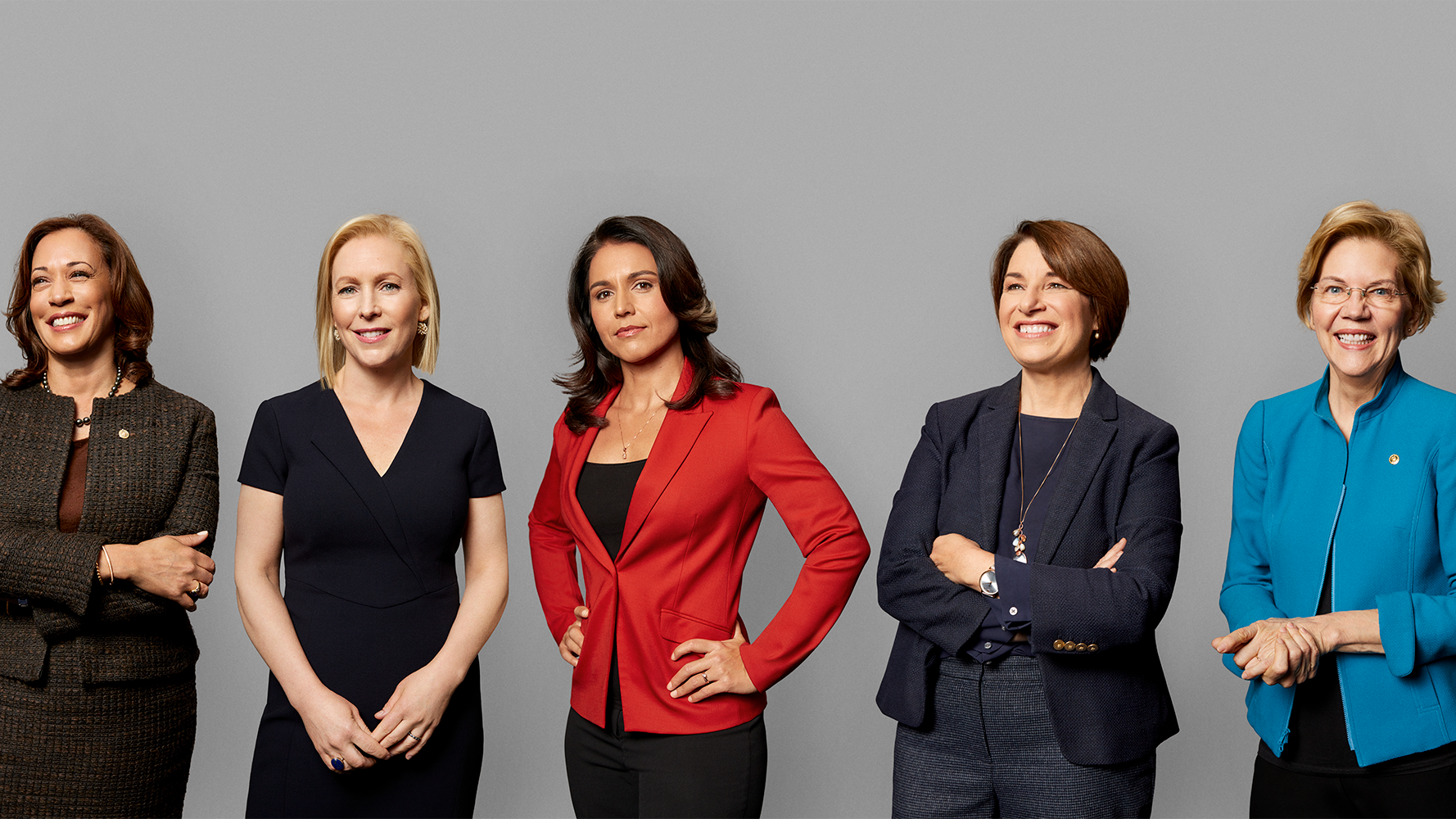
Lagos-born and Houston-raised, Ineye Komonibo is a writer and editor with a love for all things culture. With an academic background in public relations and media theory, Ineye’s focus has always been on using her writing ability to foster discourse about the deep cyclical relationship between society and the media we engage with, ever-curious about who we are and what we do because of what we consume. Most recently, she put her cultural savvy to work as a culture critic for R29 Unbothered, covering everything from politics to social media thirst to the reverberations of colorism across the African diaspora.
-
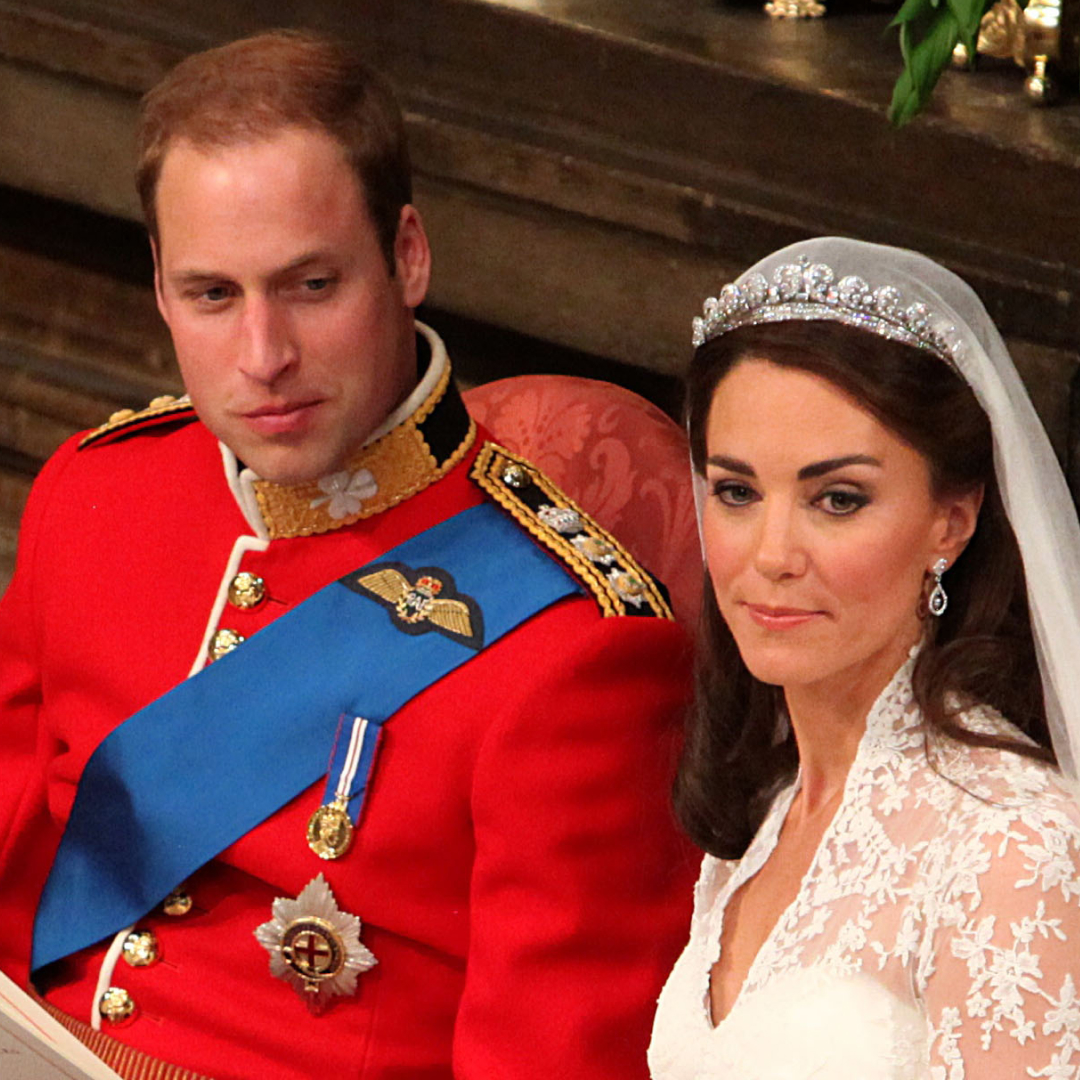 Why Prince William's Exes Attended His Wedding to Kate Middleton
Why Prince William's Exes Attended His Wedding to Kate MiddletonThe exes were invited "due to a more peculiar upper class British tradition."
By Amy Mackelden
-
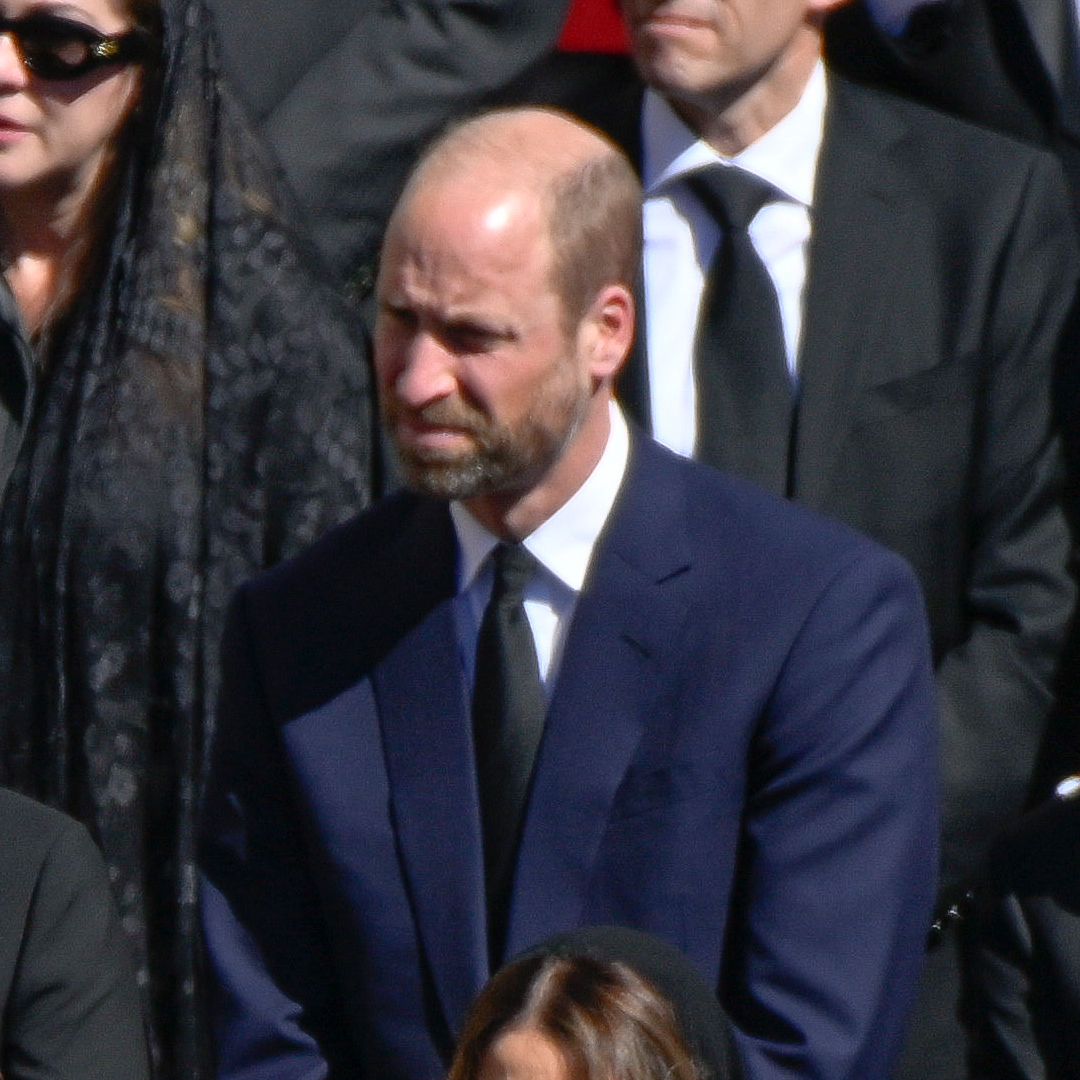 Why Prince William "Stepped in" for King Charles at the Pope's Funeral
Why Prince William "Stepped in" for King Charles at the Pope's FuneralThe seating plan was described as a "master plan" of "big egos."
By Amy Mackelden
-
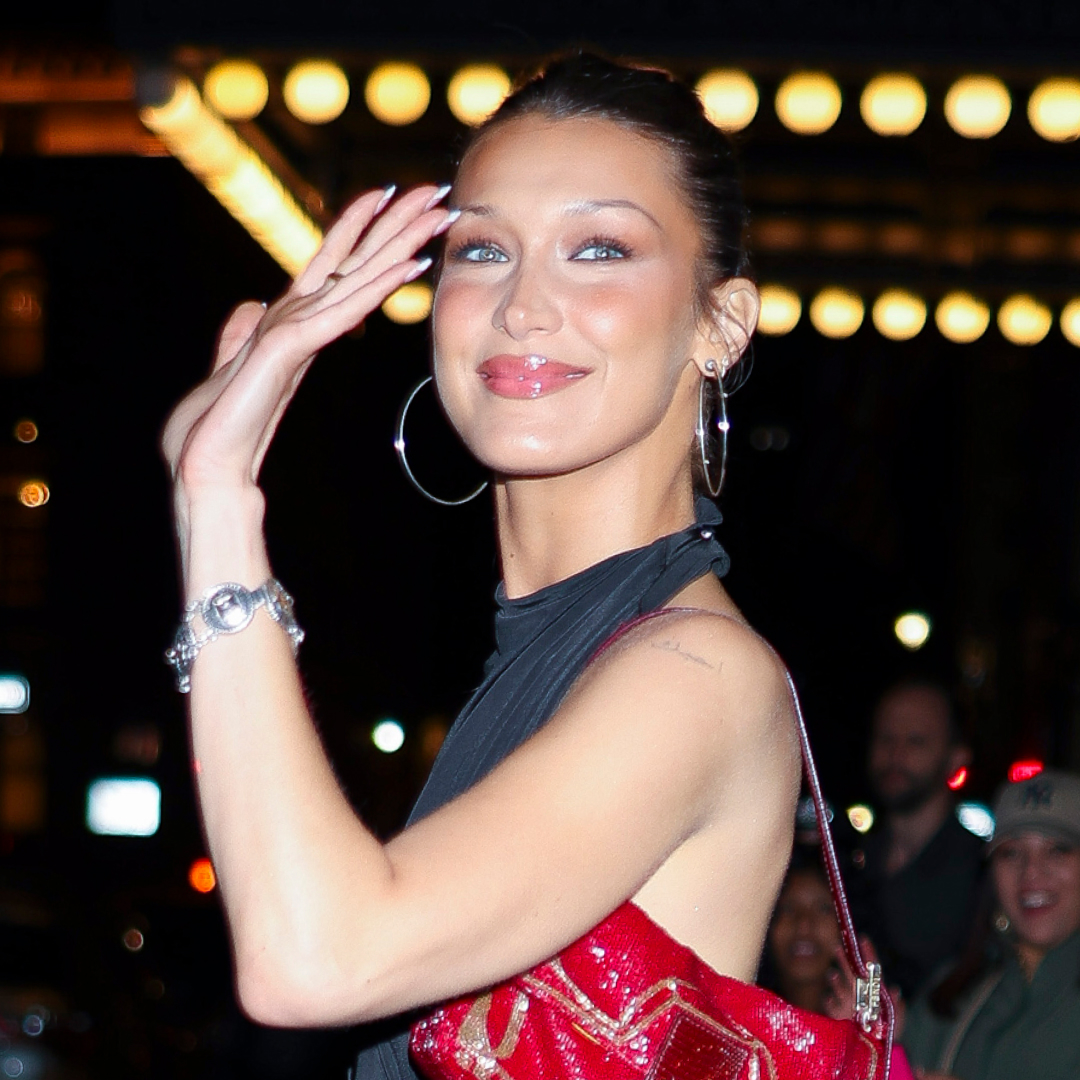 A Vintage Fendi Baguette Is Bella Hadid's Plus-One
A Vintage Fendi Baguette Is Bella Hadid's Plus-OneThe model paired her skintight capri jumpsuit with pointed-toe heels.
By Amy Mackelden
-
 36 Ways Women Still Aren't Equal to Men
36 Ways Women Still Aren't Equal to MenFeatures It's just one of the many ways women still aren't equal to men.
By Brooke Knappenberger
-
 How New York's First Female Governor Plans to Fight for Women If Reelected
How New York's First Female Governor Plans to Fight for Women If ReelectedKathy Hochul twice came to power because men resigned amid sexual harassment scandals. Here, how she's leading differently.
By Emily Tisch Sussman
-
 Why the 2022 Midterm Elections Are So Critical
Why the 2022 Midterm Elections Are So CriticalAs we blaze through a highly charged midterm election season, Swing Left Executive Director Yasmin Radjy highlights rising stars who are fighting for women’s rights.
By Tanya Benedicto Klich
-
 Tammy Duckworth: 'I’m Mad as Hell' About the Lack of Federal Action on Gun Safety
Tammy Duckworth: 'I’m Mad as Hell' About the Lack of Federal Action on Gun SafetyThe Illinois Senator won't let the memory of the Highland Park shooting just fade away.
By Sen. Tammy Duckworth
-
 Roe Is Gone. We Have to Keep Fighting.
Roe Is Gone. We Have to Keep Fighting.How To Democracy always offers a path forward even when we feel thrust into the past.
By Beth Silvers and Sarah Stewart Holland, hosts of Pantsuit Politics Podcast
-
 The Supreme Court's Mississippi Abortion Rights Case: What to Know
The Supreme Court's Mississippi Abortion Rights Case: What to KnowThe case could threaten Roe v. Wade.
By Megan DiTrolio
-
 Sex Trafficking Victims Are Being Punished. A New Law Could Change That.
Sex Trafficking Victims Are Being Punished. A New Law Could Change That.Victims of sexual abuse are quietly criminalized. Sara's Law protects kids that fight back.
By Dr. Devin J. Buckley and Erin Regan
-
 My Family and I Live in Navajo Nation. We Don't Have Access to Clean Running Water
My Family and I Live in Navajo Nation. We Don't Have Access to Clean Running Water"They say that the United States is one of the wealthiest countries in the world. Why are citizens still living with no access to clean water?"
By Amanda L. As Told To Rachel Epstein